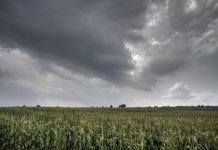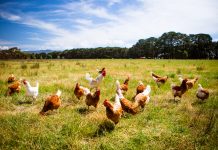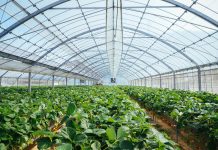The University of Southampton has launched NUCNet, a £645K initiative to urgently research climate-resilient crops like lentils and chickpeas. This initiative is crucial in boosting UK food security and adapting to the rapidly changing climate
The University of Southampton has launched the Novel and Underutilised Crop Network (NUCNet), backed by over £600,000 from the BBSRC. This initiative aims to explore how climate-resilient crops such as lentils, chickpeas, and sunflowers cannot only survive but thrive in the UK. By working with farmers, retailers, and communities, the network has the potential to significantly strengthen food security, support sustainable agriculture, and prepare the nation for a climate-challenged future.
Elevating UK farming with climate-resilient crops
UK farming is heavily reliant on a small number of crops, mainly wheat, barley and oilseed rape. Extreme weather and new pests as a result of climate change could damage harvests, threatening the UK’s food security. As a result, billions of pounds have been lost due to climate change-related floods and droughts, underscoring the importance of climate-resilient crops.
The Novel and Underutilised Crop Network (NUCNet) will bring together researchers from around the country in a coordinated effort to identify the opportunities and barriers to growing crops like lentils, chickpeas, sunflowers and others in the UK.
The team, which includes researchers from the Universities of Southampton, Dundee, Reading, and the National Institute of Agricultural Botany, have been allocated £645k funding from the Biotechnology and Biological Sciences Research Council (BBSRC).
The Novel and Underutilised Crop Network (NUCNet) is a collaborative effort that will unite researchers, farmers, retailers, and community groups. Together, they will explore how the UK can utilise crops that are rarely grown in the UK, but could be crucial to food security in the future.
Several groups of researchers are already working on climate-resilient crops; however, this new network will bring experts together, directing and stimulating future research activity, engaging with stakeholders, and influencing policy.
“There are a lot of unknowns about how this transition might take place, from the practical challenges facing farms to whether it is economically viable,” says Professor Mark Chapman, the project lead, from the University of Southampton.
“The new network will coordinate research efforts to provide evidence for system-level change to the UK food system. Crucially, this means engaging directly with producers, supermarkets, and communities to understand their perspectives.”
The network is particularly keen to engage with young people, as they will be the generation at the forefront of climate change who will lead this transition.
“We know that by 2100, the climate will be at least 1.5 degrees hotter than it is today,” says Professor Chapman. “So, we need to teach young people about which crops will and will not be suitable in these conditions.
“We also want to educate them about small changes they can make in their own diet that can help put us on a path which limits these temperature rises as much as possible.”











